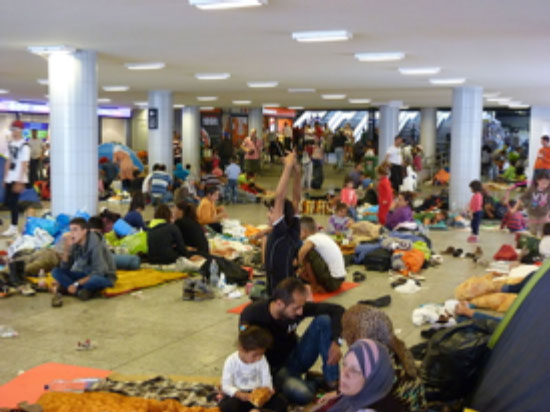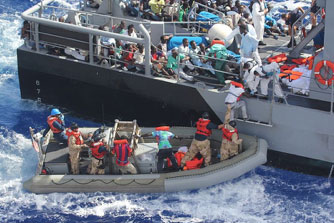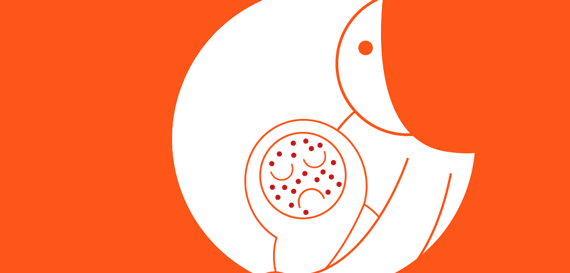After food and shelter, one of the most urgent priorities for the thousands of people living in camps around Europe is basic healthcare. Failure to deliver will see repeated measles outbreaks and threaten the global effort to wipe out polio.
“The scale of the current influx of refugees is inevitably putting pressure on public health systems in frontline receiving countries,” according to a report by the European Centre for Disease Surveillance and Control (ECDC).
The ECDC’s ‘threat assessment’ says refugees do not currently represent a threat to Europe in terms of infectious diseases but, living in overcrowded camps, they are vulnerable to infection.
Some of the people who have migrated to Europe come from countries where measles, rubella, meningitis, chickenpox and other vaccine-preventable diseases are endemic, and immunisation status is often incomplete or unknown. Poor sanitation and hygiene in the crowded camps is making matters worse.

UNICEF has launched recurring measles vaccination drives in refugee camps such as those on the Syrian border, while non-governmental organisations like MSF are providing immunisation in Calais and elsewhere.
The so-called ‘jungle’ in Calais, France, reported several cases of measles last month, with children and at least one aid worker infected. Given the weak disease surveillance systems in these areas, the true extent of any outbreak is likely to be much worse than official data can detect.
One of the major challenges with increasing surveillance and recording immunisation status is that migrants are hesitant about being officially registered in case it leads to their deportation.
The ECDC says vaccination should be central to medical services provided to refugees. It suggests the follow diseases be prioritised:
- Measles: using the MMR vaccine and prioritising children up to 15 years.
- Polio: for children and adults from countries such as Afghanistan and Pakistan and others vulnerable to the disease
- Meningococcal disease
- Diphtheria
- Influenza (during flu season)
This echoes the advice from an expert opinion paper published by the ECDC in November 2015 which also noted the need to screen for tuberculosis.
After the camps
The flow of migrants across the Mediterranean slowed somewhat over the winter months but is on the rise again as temperatures slowly rise. Temporary accommodation centres will struggle to handle a growing population.

For those who leave the camps and stay in European cities, the accommodation problem is far from over. Commentators say that Syrian communities are already concentrating in densely-populated slums in Turkey.
If this is replicated from Greece to Germany, it could mirror the challenges experienced in maintaining the health of Roma communities where measles infections have been an ongoing issue.
And, as Europe knows well, an outbreak in one country can quickly spread across the continent.

Beyond their established economic value, the social value of immunisation has come into focus recently. Vaccination can support social integration of minority groups, help to reduce inequalities by keeping disadvantaged people healthy, and support herd immunity.
For the sake of the people living in horrendous conditions in refugee camps, it is essential that immunisation is prioritised. If Europe is serious about eliminating measles and curbing outbreaks of other vaccine-preventable diseases, there is no time to lose.



